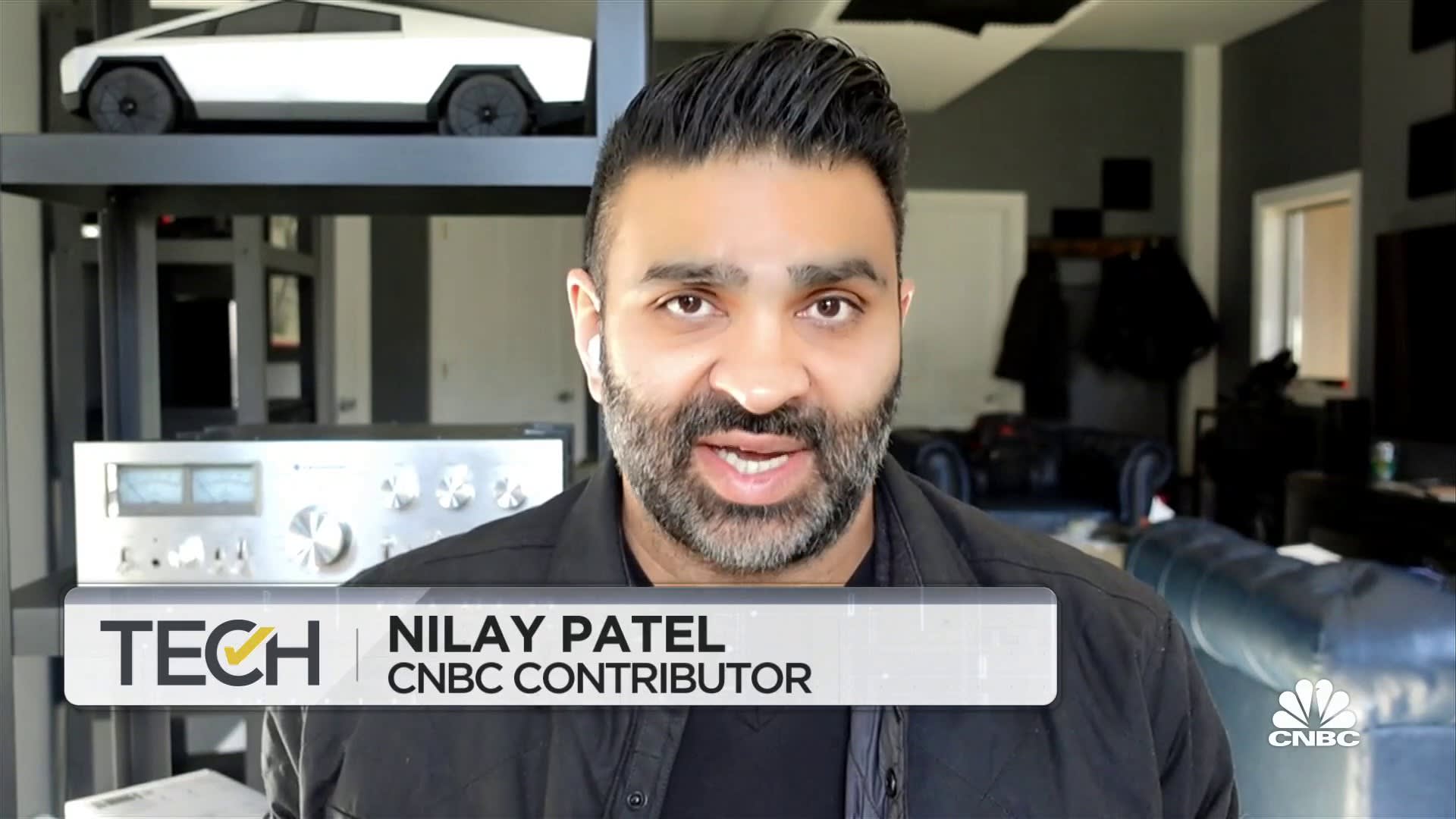Meta's Defense In The Ongoing FTC Monopoly Lawsuit

Table of Contents
Meta's Argument Against Anti-Competitive Practices
Meta vehemently denies the FTC's accusations of anti-competitive behavior, arguing that its actions have fostered innovation and benefited consumers. The company contends that the social media landscape is far from monopolistic, highlighting the existence of robust competition.
-
A Thriving Competitive Market: Meta emphasizes the presence of significant competitors such as TikTok, Twitter (now X), and Snapchat, each vying for users and market share. The company argues that a dynamic competitive environment exists, preventing any single entity from dominating the market.
-
Acquisitions as Drivers of Innovation: Meta defends its acquisitions, arguing that they have led to significant innovations and improved user experiences. For example, the integration of Instagram and WhatsApp has allowed for enhanced features and cross-platform functionalities, benefitting millions of users globally. These acquisitions, Meta claims, have not stifled competition but rather fueled it through the introduction of new features and services.
-
Addressing Stifling Competition Claims: Meta directly counters claims that its acquisitions have stifled competition. The company provides examples of successful integrations and market expansion, demonstrating how acquisitions have actually broadened the market rather than constricting it. They highlight the enhanced capabilities and new features resulting from these mergers, benefiting both users and the overall digital ecosystem.
-
The Power of Network Effects: Meta argues that network effects – the phenomenon where a product or service becomes more valuable as more people use it – inherently benefit consumers. The larger the user base, the richer the experience, leading to enhanced connectivity and opportunities for engagement. This, they argue, is a natural outcome of market dynamics, not an anti-competitive practice.
Challenging the FTC's Definition of the Relevant Market
A central point of contention in the lawsuit is the FTC's definition of the "relevant market." Meta argues that the FTC's narrow definition is flawed and doesn't reflect the reality of the dynamic digital marketplace.
-
A Broader Market Definition: Meta advocates for a broader definition of the relevant market, encompassing not just social networking but also a wider range of communication platforms, online advertising avenues, and even entertainment apps. This, they argue, would accurately reflect the diverse competitive landscape.
-
Evidence of Substantial Competition: Meta provides extensive evidence demonstrating the presence of substantial competition beyond its own platforms. This evidence includes market share data, user statistics, and analysis of competitor offerings. They emphasize that users readily switch between different platforms based on their preferences and needs.
-
The Dynamic Nature of the Digital Market: Meta stresses the highly dynamic nature of the digital market. New platforms and technologies emerge constantly, creating a continuously evolving competitive environment. This, they argue, undermines the FTC's assertion of a static market dominated by Meta.
Addressing Allegations of Data Monopoly
The FTC also alleges that Meta exploits its vast user data for anti-competitive advantages. Meta refutes these claims, emphasizing its commitment to user privacy and responsible data handling.
-
Data Usage Policies and User Benefits: Meta explains its data usage policies, highlighting how data is used to personalize user experiences and deliver relevant advertising. They emphasize that this data-driven approach ultimately benefits users by providing more tailored content and services.
-
The Value of Data for Personalized Experiences: Meta argues that the use of data is essential for providing personalized experiences and targeted advertising. This allows businesses to reach their intended audiences effectively, which is beneficial for both advertisers and users who receive more relevant information.
-
Industry Standards and Compliance: Meta counters claims of unfair data practices by demonstrating its compliance with industry standards and regulations regarding data privacy and security. They point to their investments in data security measures and their ongoing efforts to comply with evolving data protection laws.
-
User Consent and Data Privacy Protections: Meta highlights the importance of user consent and the robust data privacy protections it offers. They underscore that users have control over their data and can manage their privacy settings accordingly.
Meta's Commitment to Innovation and Consumer Choice
Meta's defense also centers on its commitment to innovation and consumer choice, arguing that its actions ultimately benefit users.
-
Significant R&D Investments: Meta showcases its substantial investments in research and development, highlighting its commitment to creating new technologies and features. These investments, they argue, are a key driver of innovation within the digital landscape.
-
New Features and Products: Meta points to the introduction of numerous new features and products aimed at improving user experience and enhancing connectivity. This ongoing development, they contend, demonstrates a commitment to innovation and meeting the evolving needs of its users.
-
Adapting to Evolving Consumer Preferences: Meta emphasizes its constant adaptation to changing consumer preferences and market trends. They highlight their ability to introduce new products and services to meet evolving user needs and to compete effectively.
-
Diverse Range of Social Media Options: Meta reinforces the notion that it provides a diverse range of social media options through its various platforms, allowing users to choose the platform that best suits their individual preferences and needs.
Conclusion
Meta's defense in the ongoing FTC monopoly lawsuit rests on several key pillars: the existence of robust competition, the positive impact of its acquisitions on innovation, the responsible use of user data, and its commitment to providing consumers with choice. The outcome of this case will have significant implications for the tech industry and competition policy globally. To fully understand the complexities of Meta's defense in the ongoing FTC monopoly lawsuit, further research is encouraged. You can explore resources by searching for keywords like "FTC vs Meta," "Meta antitrust lawsuit," or "Facebook monopoly case" to form your own informed opinion.

Featured Posts
-
 Securing Your Place In The Sun Financing Options And Legal Advice
May 19, 2025
Securing Your Place In The Sun Financing Options And Legal Advice
May 19, 2025 -
 Haaland Announces New Mexico Gubernatorial Bid
May 19, 2025
Haaland Announces New Mexico Gubernatorial Bid
May 19, 2025 -
 Kibris Ta Sehitlerimiz Fatih Erbakandan Oenemli Bir Aciklama
May 19, 2025
Kibris Ta Sehitlerimiz Fatih Erbakandan Oenemli Bir Aciklama
May 19, 2025 -
 Australias Decision To Skip Junior Eurovision 2025
May 19, 2025
Australias Decision To Skip Junior Eurovision 2025
May 19, 2025 -
 The Growing Problem Of Bare Beating On Public Transportation
May 19, 2025
The Growing Problem Of Bare Beating On Public Transportation
May 19, 2025
